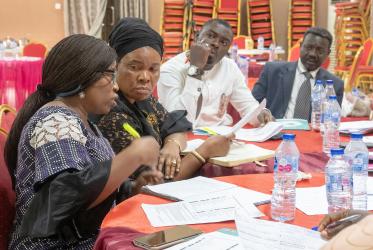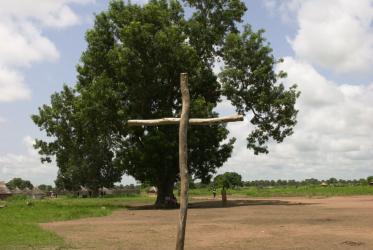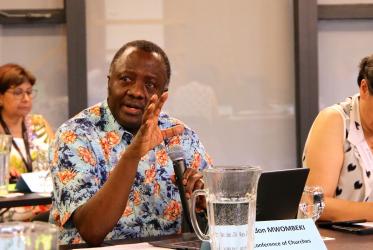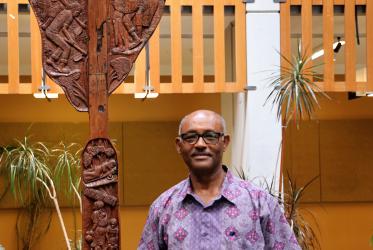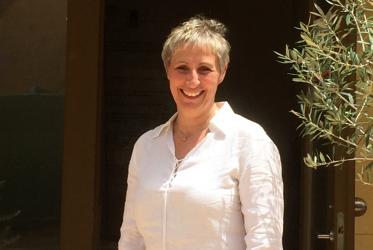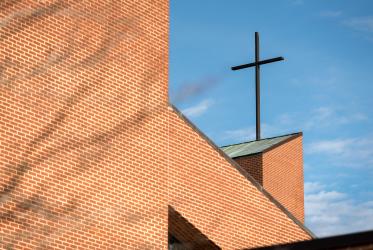Displaying 81 - 100 of 305
10 October 2019
African religious leaders express new concerns over South Sudan peace
19 September 2019
Dr Saïd Ailabouni: God is on the side of rejected, oppressed, occupied
12 September 2019
Erhard Hermansen: “The church in South Sudan needs our prayers"
09 September 2019
Regional forum in Nigeria centers on banning nuclear weapons
04 September 2019
South Sudan Council of Churches Assembly issues resolutions
02 September 2019
Former WCC executive finds joy working for peace in Ethiopia
06 August 2019
WCC climate justice project wins Keeling Curve Prize
11 July 2019

